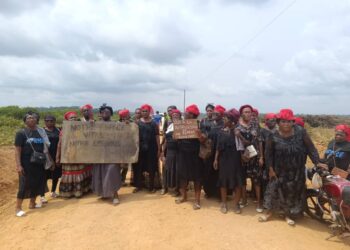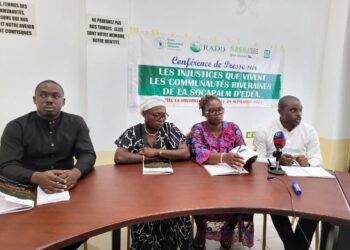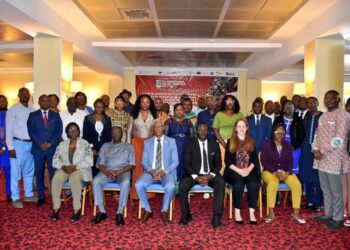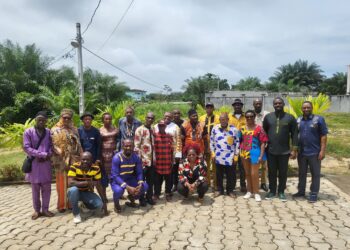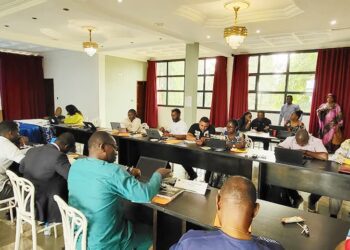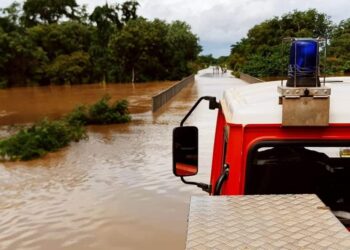The United Nations has placed 2021 – 2030 as the Decade on Ecosystem Restoration. It was conceived as a means of highlighting the need for greatly increased global cooperation to restore degraded and destroyed ecosystems, contributing to efforts to combat climate change and safeguard biodiversity, food security, and water supply.
The importance to achieve the goals of this vision was greatly echoed during the first ever Digital Conference on Drylands Restoration in Africa holding from June 2 – 3, 2021.
“To speak about land is to speak about life, land is humanities common treasure, we must all protect.” Says Ibrahim Thiaw, Executive Secretary of the United Nations Convention to Combat Desertification (UNCCD).
He was speaking during one of the sessions of the Drylands Restoration Conference that dealt with “Framing the UN Decade: An African Perspective in Ecosystem Restoration“.
According to Ibrahim Thiaw, it is time to change the narratives on Drylands in Africa, time to turn challenges into opportunities, and that will be possible if attention is paid to the young and dynamic population of the continent.
Drylands they say are certainly fragile but not volatile, and that explains why the different speakers at the session declared that Africa Response to Drylands should be urgent, timely and appropriate for all.
The Vice President and Regional Director for Africa at World Resource Institute, Wanjira Mathia, who strongly corroborates the idea that Drylands are “Under Attack” from mangroves to humid tropical forest believes that for Africa to succeed in the restoration struggle, she must empower her population.
“There are young champoins in the continent working already in that direction and they actually need to be supported both with policies that work and incentives to boost their actions” She Declared.
To her, everyone has to be brought onboard, Technical Experts; Policy Makers; Entrepreneurs; Civil Society Organisations; Media among others.
Another presentation during the session was from Inger Anderson, Under Secretary General at the UN Environment Programme. She said time for promises is over and now is reserved for action. To act needs finances, but the advantages that come with investments in Drylands Restoration are enormous, she continued stating that;
“When we restore lands, we promote peace and reduce force migration. We are glad some 115 countries have already set restoration targets of over 1 billion hectares with about 100 million hectares to be restored by 2030.”
One take home message at the end of the session on “Framing the UN Decade: An African Perspective in Ecosystem Restoration” was that the stage has been set and results are highly expected.
Global Goals Need Local Solutions
Day one of the Digital Drylands Restoration Conference gathered experts and participants from across the globe to discuss on Community led restoration efforts, with a discussion on “Scaling Farmers Centered Landscape Restoration“.
“The continued impact of land degradation and climate change is an indication that landscape restoration is urgent and it can’t be done successfully without farmers,” Says Leigh Winowiecki, Soil System Scientist at ICRAF/CIFOR.
To this expert, Farmer Centered Restoration can be a key pathway for achieving food and nutrition security.
The discussions also centered around the challenges of Farmer Centered Restoration especially in remote areas in Africa where poverty and lack of skills speak volume.
“There is lack of technology, but traditional technologies from farmers should be encouraged.” Lucy Mulenkei, the Executive Director of the Indegenous Information Network in Kenya explained during one of the sessions of the conference.
To combat these challenges, some key proposals were made by the experts.
Prof. Wilson Ng’ etech, Deputy Vice chancellor of the University of Eldoret, Kenya said the private sector has a big role to play to be able to spark restoration, sustainability in production and boost local farmers through diverse means.
Marcella D’ Souza, founder and Director of the Watershed Organization Trust Centre for Resilience Studies in India threw more light on the role of the private sector in assisting local farmers achieve integrated approaches, though the contribution of the private sector has to respect some guidelines.
“The private sector should respect the knowledge of the farmers, and should not promote the use of industrial chemicals of small scale farmers,” Lucy Mulenkei added.
Land tenure governance was identified during the discussions to be primordial in the restoration process with integrated policies of great importance according to Saydou Koudougou, Executive Secretary of a Research and Action Group on Land Issues in Burkina Faso.
Concerning funding to Scale up the Farmer Centered Landscape Restoration, Gautier Quéru, Director of the LDN Fund/Minrova, declared that farmers should not wait for public authorities to propose solutions for funding, communities should equally come together and put forth proposals.
Half of small scale farmers are women according to Lucy Mulenkei, and the need for men to be able to transfer land rights to women can not be over emphasized, and should implicate all stakeholders.
At the end of the discussion, Miriam Mesel Garcia, Chief of External Relations, Policy and Advocacy, at the UNCCD, acknowledged the fact that people success is inevitable, if equality, equity, and trust are placed on the same scale.

